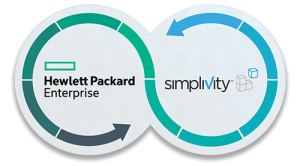 Yesterday, Microsoft announced that it had entered into an agreement to purchase Avere Systems, a maker of software and hardware appliances that can perform filesystem virtualization, file-to-object gateway services, and allow customers to easily connect their onsite storage to public cloud storage.
Yesterday, Microsoft announced that it had entered into an agreement to purchase Avere Systems, a maker of software and hardware appliances that can perform filesystem virtualization, file-to-object gateway services, and allow customers to easily connect their onsite storage to public cloud storage.
If you’re a long-time reader of this blog, you’ll know that I’ve been a big fan of the Avere platform. In my reseller days, I was involved in a few deals on solutions and designs involving Avere filers.
If you’re not familiar with Avere, you can read these quick overviews of their cloud gateway capabilities, their virtual filer, and their complete onsite storage solution.
Avere Systems customers include the Centers for Disease Control and Prevention, John Hopkins University, and Sony Corporation’s entertainment division. (I’m fairly familiar with how two of those three customers are employing their Avere filers.)
If I were to sum up what the Avere filers provide for customers, it would be that they provide the performance of local (onsite) storage for data that’s stored remotely (offsite). Clients access the Avere systems front-end using either the NFS or SMB protocols. The back-end can connect to multiple storage sources using either NFS, SMB, S3, or some combination. The Avere filers present clients with a single global namespace, meaning the client has no knowledge of where the data’s source actually is. Data can be migrated between sources on the Avere’s back-end with no interruption of service to clients connecting to the front-end.
With the virtual filers, Avere can also allow offsite compute clients in the cloud to access data in a customer’s private onsite data center…
In all, it’s not difficult to see why Microsoft might want to acquire them — especially since they’ve announced their intent to move it into their Azure division. What’s surprising, really, is that no other cloud provider saw Avere as an acquisition target earlier.
If Microsoft is able to incorporate that ability to have cloud computing resources accessing data from private onsite data centers into Azure, it will be a big differentiator for them as no other cloud providers currently offer a similar capability.
At this time, there’s been no news regarding the purchase price. Estimates and specualtion range from $300 Million to $500 Million. If true, compared to the potential Avere’s intellectual property has to add to a cloud service provider, this could turn out to have been quite the bargain for Microsoft.
Today, Avere Systems supports Microsoft Azure, Amazon Web Services, and Google Cloud Platform. Obviously we should expect closer integration with Azure in the future, but Microsoft says they’ll continue to support AWS and Google, which I’m sure is welcome news to existing Avere Customers.
Resources
- Microsoft blog post on the acquisition
- Avere Systems blog post on the acquisition
- The Register article
- Silicon Angle blog post


